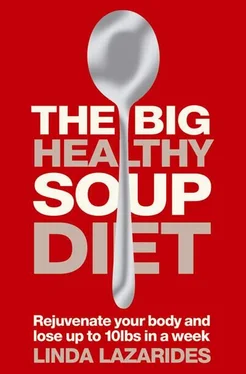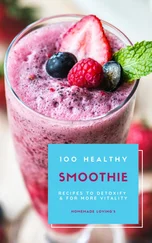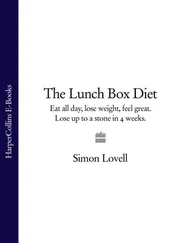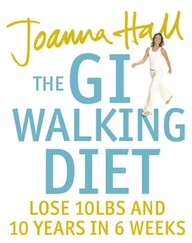Traditional Oriental wisdom has understood the problem all along. In Oriental medicine, too much raw or cold food would be considered to encourage weight gain as it depletes the body’s ‘fire’ or Yang energy (metabolism). Hot chunky soups made with lentils and moderately flavoured with garlic, onion, cayenne, chilli and ginger are much more energizing. Oriental experts believe that such foods burn off excess water in our bodies, and this is of course very good news for sufferers of water retention—a common cause of overweight. Don’t overdo these spices—burning your insides would be counterproductive and unnecessary.
The warmth of soup makes you feel full as salad rarely can. Soup itself is a comfort food. But owing to its water content and healthy ingredients, this is a low-calorie comfort food and there is no problem with extra helpings. You won’t eat any more calories than in the average salad. But the results are far superior:
Fewer cravings for sweet, starchy and fatty food
Much improved ability to stick to the diet
Faster, more successful weight-loss
Even scientific researchers agree that soup has some very special properties. In 1999, Barbara J. Rolls and Elizabeth A. Bell of Pennsylvania State University discovered that feeling full doesn’t need to depend on the number of calories you eat. If you know how, you can feel full just by making each calorie more filling. How do you do this? By adding hot water to your food to make soup! In this study, 24 young women were fed a 270-calorie appetizer of chicken-rice casserole—first on its own, second with a glass of water, and finally by adding the glass of water to the casserole and serving it up as chicken-rice soup. Then the researchers measured how much lunch the women ate afterwards. The results were incredible. After the casserole or the casserole/glass of water they proceeded to consume 300 calories for lunch. But after a bowl of soup, they could only manage to eat 200 calories. That’s a one-third reduction! Nor did they get hungry earlier or eat a bigger dinner later! It seems that when water is incorporated into food the body becomes satisfied much more easily.
This is a whole new area of weight-loss research, and several more studies are summarized at the end of this chapter. It is another interesting fact that, according to the research, chunky soups are more effective in controlling appetite than smooth, pureed soups. All this helps to explain the success of the Cabbage Soup Diet made famous by Dolly Parton. But cabbage also has some special properties of its own, as you will find out later. The Big Healthy Soup Diet includes five new and delicious recipes for cabbage soup.
INGREDIENTS THAT KEEP YOU FEELING FULL
With the right ingredients, soup can be even more satisfying and keep you full for even longer. It can also help to balance your hormones, and this is essential when you want to burn off your body fat.
Three ingredients that help weight-loss when added to soup include:
Fats and oils
Protein
Soluble fibre
It’s just so easy to say ‘Fats and oils are high in calories so cut them out and you’ll lose weight.’ This only makes people start cutting out the fats they can see : butter and margarine, cream, cooking and salad oils, meat fat and even the skin from chickens. In fact, eaten in moderation, none of these are a problem. It is hidden fats—the fats you can’t see— that really pile on the pounds. Foods with large amounts of hidden fat include:
Biscuits and cookies
Burgers
Cakes
Chocolate
Creamy dips
Creamy desserts
Crispy snacks
Deep-fried food
Ice cream
Pies and pastries
Sausages and salami
For instance, have you ever read a recipe for making chocolate brownies? Most brownie recipes contain even more fat and sugar than they do flour. Every portion of pastry or pie-crust you consume probably contains at least two tablespoons of pure fat. You can’t see it, but just try pressing a few crumbs on a piece of paper and see the grease spots appear. Burgers can easily consist of up to 70 per cent invisible fat. Burger meat can quite legally be described as ‘lean’ even if it contains up to 30 per cent fat. Imagine how hard it is to lose weight if you keep eating too many foods like this. And imagine what they do to your skin—making it greasy and prone to blackheads as a result of clogged pores. Too much saturated fat also affects your blood circulation, and this is bad news for cells that make collagen. As you know, skin sags and shrinks when your collagen starts to deteriorate. You need to feed your collagen-making cells with the right food in order to stay looking young as long as possible.
High-fat foods also tend to make you feel sluggish. Vitality is attractive, but its opposite—sluggishness—is not!
The Big Healthy Soup Diet aims to make it easier for you to stop eating high-fat junk foods. One of its techniques is to include a healthy proportion of good quality oils, and occasionally even a little cream. When strictly controlled, these fats make weight-loss much easier.
They make your soups substantial, filling and delicious. If you find yourself craving junk food, have another helping of soup and the craving will be much less. It will cease to be a physical craving.
The hormone that makes you fat
Beware of trying to cut corners by cutting the oils out of the recipes in this book. It is tempting to think you might lose weight faster if you do, but there are several special reasons why you actually need these ingredients.
Fats or oils slow down your digestion and absorption of other food ingredients. This is why they help to control your appetite—food takes longer to get through your system when it contains a little fat or oil. Most importantly, fats or oils slow down your absorption of starches and sugars (carbohydrates). This makes you produce insulin more slowly. Insulin is a hormone that carries out many tasks in the body. It is essential to help you turn carbohydrates into energy, but you don’t want to have too much of it hanging around. High insulin levels occur when you eat too much carbohydrate. They
Raise your cholesterol levels
Slow down your loss of body fat
Encourage your body to turn calories into fat
Encourage water retention (by slowing down your excretion of sodium)
Can you see why it is positively beneficial to have some fat or oil in your diet? But if your thoughts are now wandering towards a bar of chocolate, try to stop them. It is your meals (soup) that must contain the oil. Your meals must be as satisfying as possible so that you won’t crave sugar and high-calorie snacks between meals. The fats or oils must also be nutritionally useful, providing monounsaturated or essential polyunsaturated oils, and the retinol (true vitamin A) and vitamin D that your body cannot get elsewhere. The meal must also be free of sugary items, since these will push up your insulin levels regardless of how much fat or oil you eat.
I hope it is becoming clear that there is a lot more to fats and oils than just calories. In fact, used in moderation as suggested in this book, oils should really be applauded because of their ability to control appetite and prevent excessive insulin surges. In moderation, some oils (such as olive oil) are also very healthy in their own right.
Butter, cheese and cream provide retinol and vitamin D, needed by your bones, mucous membranes and immune system. It is difficult to get these nutrients elsewhere. Olive oil is known to have many health benefits and, like coconut oil, will combat harmful fungi which many people harbour in their intestines. Extra-virgin olive oil also contains an abundance of useful antioxidants. Soy and nut oils provide polyunsaturated fatty acids, which are vital for health. If you cut them out of your diet you can develop problems with your skin, hormones and water balance.
Читать дальше












